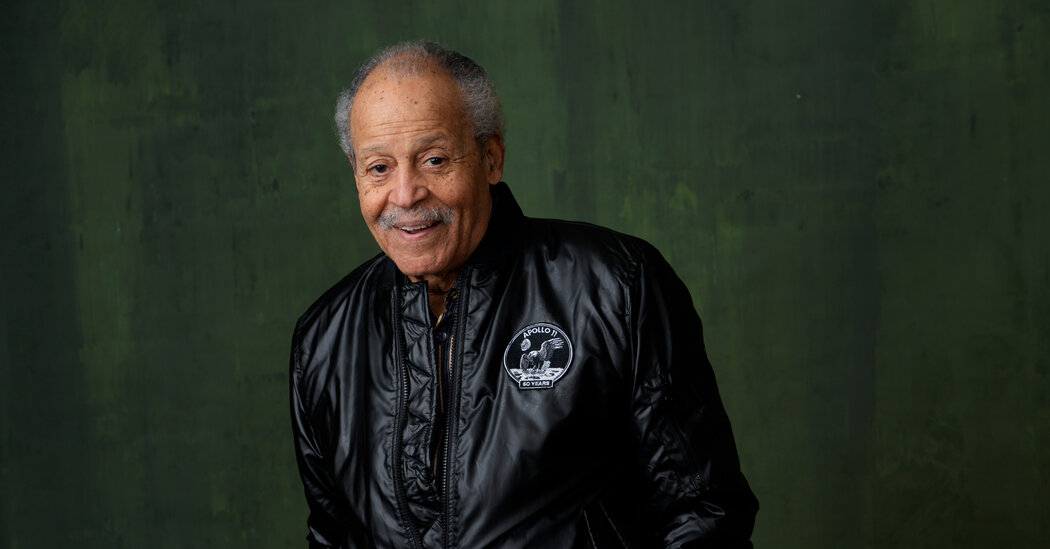Edward Dwight was among the first pilots that the United States was training to send to space in 1961, but he was passed over. On Sunday, he finally made it on a Blue Origin flight.
More than 60 years after Edward Dwight was chosen to be the first Black astronaut, only to see his place in the history of space exploration taken and deferred by the specter of racism and politics, he went to space on Sunday morning.
After landing, at the end of a flight that lasted 9 minutes and 53 seconds, Mr. Dwight stood on the steps outside the door of the crew capsule, raised his arms in the air and said, “Long time coming.”
Minutes later, standing outside the capsule, he said that the flight had been “life-changing.” He admitted that he had been saying, earlier in the day, that he didn’t need the flight in his life. “But I lied,” he said.
Mr. Dwight, 90, was one of six people on board the Blue Origin spaceflight of the New Shepard rocket that launched on Sunday morning from a private launch site near Van Horn, Texas. The flight made him the oldest person to ever go to space; he surpassed the actor William Shatner.
After Mr. Dwight, who is now a sculptor, was selected for the Blue Origin flight, he told The New York Times that finally making it to space was not justice, but something that should have happened at some point.
“My whole life has been about getting things done,” Mr. Dwight said. “This is the culmination.”
